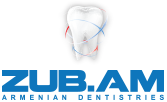+37410431950, +37410535095, +37410569490, +37410600022, +37412336699, +37410370370, +37410544333, +37493362000, +37410539999, +37410526237, +37410277281, +37410272623, +37410278464, +37410534063, +37410391607, +37410578808, +37410222853, +37495278010, +37410202934, +37410357177, +37410555066, +37410569767, +37410526021, +37410276200, +37410211213, +37410369270, +37410489700, +37410228136, +37410396688, +37410646555, +37494023626, +37410624961, +37410368982, +37410450125, +37410534838, +37426121121, +37455336591, +37410749355, +37493375396, +37410535501, +37410207986, +37410234158, +37410672733, +37499222122, +37410-320-333, +37410356016, +37410740140, +37493344408, +37410-237000, +37410-265015, +37410-539981, +37410544528, +37410349729, +374-10-229192, +37423236310, +37432222636, +37410235787, +37460643066, +37441250025, +37499916333, +37410420783, +37410544554, +37432264444, +37410533838, +37410279227, +37432223115, +37410521022, +37477454809, +37494545755, +37410558404, +37410546820, +37495960660, +37443738808, +37422327772, +37494584023, +37460443737, +37441620062, +37410238658, +37455944429, +37496007202, +37491312406, +37495489700, +37491995066, +37499303011, +37491507283, +37499422988, +37491401856, +37493242622, +37491546820, +37477222042, +37494553028, +37493411833, +37494637778, +37493479940, +37477182292, +37477182292, +37491744453
Login or password incorect



